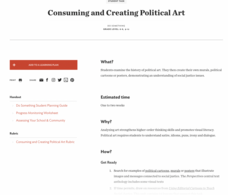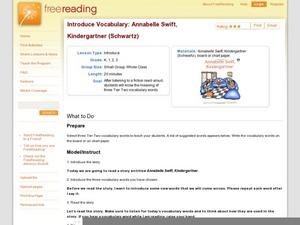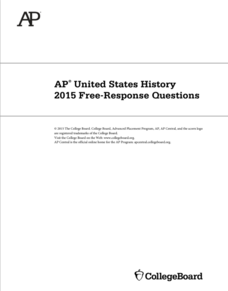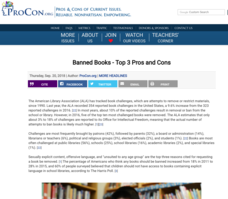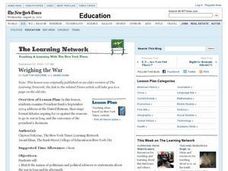Desert Museum
Daisy Ecology
Here's a fine lesson that combines poetry with life sciences. Learners carefully listen to a poem that's all about a food chain. As the poem is read, learners name the producer, the herbivore, the carnivore, and the omnivore. Lots of...
Curated OER
In Great Demand
Focusing on supply and demand, learners discuss economic principles in this lesson related to Wisconsin. After discussing supply and demand, learners answer questions related to a pizza parlor. They talk about profit, as well as other...
Macmillan Education
Networking and Effective Communication
What makes a great networker? Learners explore valuable life skills and interpersonal character traits, and consider how to present oneself in the most effective way during an opportunity to network.
Houghton Mifflin Harcourt
Family and Friends: Extra Support Lessons (Theme 4)
Family and Friends is the theme of a unit offering extra support lessons. Follow each lesson plan's teach, blend, guided practice or practice/apply routine to reinforce concepts such as clusters, responding to reading, drawing...
Curated OER
Showdown on the Frontier
Especially critical following a series of shootings in schools, theaters, and religious buildings, it's safe to say that we need to evaluate the current laws on gun control. Eighth graders read a New York Times article in order to better...
Curated OER
Intolerance in American History
Examine the United States through the lens of intolerance using this 2-week unit plan, which includes details for 13 days of instruction. Scholars study examples of prejudiced behavior throughout history, discuss issues in groups,...
Curated OER
Who is the Expert? Exploring Credible Sources in Healthcare
How do you decide what sources are credible when researching online? Evaluate sources with a focus on researching health issues. After brainstorming common health concerns and how they would try to diagnose these problems, class members...
Curated OER
Day and Night
Good Night, Moon is a classic little ones absolutely love. It's a sweet book that can be used, as in this lesson plan, to start a conversation about the difference between night and day. After reading the story, the class brainstorms...
Museum of Disability
A Picture Book of Louis Braille
Teach kids about the beginnings of the Braille writing system with a instructional activity about Louis Braille. A series of discussion questions guide young readers though A Picture Book of Louis Braille by David A. Adler, and once they...
Teaching Tolerance
Consuming and Creating Political Art
A picture is worth a thousand words, but political art may be worth even more! After examining examples of political cartoons, murals, and other forms of public art, class members create their own pieces to reflect their ideals and...
BBC
Rivers
The water cycle, rainfall, and the flow of water into rivers then out into the ocean are the main ideas covered here. After a teacher-led discussion and activity, learners pair off and write a commentary about the water cycle that is to...
Curated OER
Analyzing Two or More Nonfiction Texts
How does recognizing the author's purpose help you draw conclusions about a topic? Using two articles (both are attached), learners brainstorm why each author wrote each article. Are their purposes similar or different? Learners use a...
Curated OER
Introduction to Symbolism
Your young readers might know that the stars on the American flag symbolize the fifty states, but what symbols best represent who your students are as people? Use this SMART board presentation to guide learners through an activity about...
Curated OER
Introduce: Prediction
What will happen next? Leave readers at a cliffhanger as they practice prediction strategies while listening to a story. Pupils start by making guesses based on the book's cover and title, discussing the techniques they use to make these...
Curated OER
Introduce Vocabulary: Amigo (Baylor)
Amigo by Byrd Baylor gives learners a chance to practice with unknown words and context clues. Choose several vocabulary words to focus on as you read the picture book, or use the ones provided here (the book is in English despite the...
Curated OER
Introduce Vocabulary: Annabelle Swift, Kindergartner (Schwartz)
Give beginning readers a chance to practice with unknown words and context clues using the pictuer book Annabelle Swift, Kindergartner. Choose several vocabulary words to focus on as you read the picture book, or use the ones provided...
University of Chicago
Using Artifacts for Clues About Identity
Learn about the ancient Near East through a close examination of ancient artifacts. Lead your class into analysis by first observing an artifact as a class. Pupils can then work in pairs to analyze the other artifacts and compile a list...
University of California
You Are What You Eat: Testing for Organic Compounds in Foods
We have all heard that we are what you eat, but what are we eating? An informative lesson opens with a discussion of the foods pupils have recently eaten. Then, young scientists perform four experiments on seven different foods to...
State Bar of Texas
Marbury v. Madison
Who has the final say in matters dealing with the rules under the United States Constitution? The case Marbury v. Madison brings to light the issue of judicial review. Learners investigate the Supreme Court's opinion in the case with a...
College Board
2015 AP® United States History Free-Response Questions
How do preservationists and conservationists differ? How did the Founding Fathers come to understand the American Revolution? Learners explore the queries and more using authentic College Board materials to prep for upcoming exams.
Scholastic
Reading Poems From the Academy of American Poets Chancellors
Start a lesson on poetic voice with a peer to peer discussion on what characterizes the strength in the voice with which a writer chooses to express himself/herself. In pairs, readers are tasked with reading and creating T-charts for...
Council for the Curriculum, Examinations and Assessment
Learning About Learning
Successful people know that they never stop learning. Eighth graders explore their preferred ways to learn new information with a reflective lesson about learning styles, that features surveys, writing prompts, and discussion questions.
Curated OER
Banned Books
Should people be able to ban books from schools and libraries if they find them objectionable? Scholars read the three main pros and cons regarding banned books. They also review a list of the top 10 challenged books from 2017 and...
Curated OER
Weighing the War
Study opposing viewpoints with this lesson, which examines President Bush's September 2004 address at the United Nations. Middle schoolers study the text of the address, and then stage formal debates arguing for or against the reasons to...











